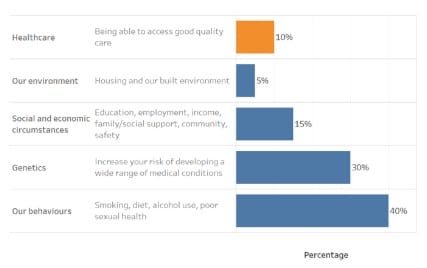Attain’s Impact on Diagnostic Tests in England
Attain’s huge impact on diagnostic tests in England. 1 in 12 new diagnostic tests are in Community Diagnostic Centre facilities that Attain helped set up – from business case and design through to delivery. We have been the delivery partner to the NHS to ensure timely implementation that impacts patients and services alike. For example, […]
Population Health Management requires a shift in focus
Population Health Management is confusing
Population Health Management (PHM) is an increasingly popular term in health and care circles, bringing with it a range of often confusing definitions (Link) and a set of equally confusing terms including social determinants, data lakes, segmentation and outcomes.
Making matters worse, people often focus on PHM solely from their own perspective, or that of their organisation, as opposed to from a system perspective. – Business Intelligence teams may zero in on the integrated data lakes and predictive analytics that it offers, while public health teams may primarily view it as a tool to address the wider determinants of health, and healthcare providers and commissioners view it as a way of measuring outcomes and integration. All of these viewpoints are correct, but they often tend to miss out on the complete picture – that PHM is a different way of looking at organising complex health and care systems.
Change in focus
At its heart, PHM is a change of focus – it advocates moving away from looking at organisational providers as the focal points of a health and care system, to looking at cohorts of people with similar needs. This shift means refocusing on the needs of people, rather than the needs of providers.
When we look at what factors affect health and care outcomes, we see that healthcare providers only impact a relatively small part, around 10%.

Source: NHS England
Behaviours, environmental factors and social circumstances are all vital determinants of health but have historically tended to fall into the ‘too hard to measure’ category and so have not been prioritised. To paraphrase the McNamara paradox – If you can’t measure what’s important, you tend to make important what you can measure. This has resulted in a focus on provider-centric output metrics as the sole guide of performance, at the expense of true outcome measures of population need.
Outcomes
If, as a core principle of PHM, we want to meet the needs of our populations, we need an accompanying shift in focus, away from measuring outputs, towards measuring and improving outcomes. Health outcomes are at the core of PHM, from which all the other functional components (data, IT, segmentation etc) flow.
What has made outcome definition and measurement easier to monitor in recent years? This is where new person-level integrated datasets and linking techniques come in, as a health outcome tends to be comprised of several pieces of information aggregated together, at an individual person level.
Vision and strategy
However, it is not enough to only have an integrated dataset and accompanying IT solution whilst continuing with the same old analytical and transformation practices. We see many systems with individual components of PHM – often integrated data sets, but with little strategy about what to do with them. PHM requires a different set of analytical skills to mirror the move from outputs to outcomes, as well as a host of other capabilities and changes in focus. These shifts in focus toward delivering true PHM for complex adaptive systems are difficult to achieve in any environment, but this challenge is exacerbated in the health and care system we work in today, where political imperatives, financial pressures and workforce shortages, for example, foster a short-term mindset.
A place based system-wide PHM strategy is needed that defines a shared vision and governance; sets out the tools and techniques needed to deliver PHM; has a plan to communicate this to all effectively and plans for a workforce that is capable of delivering the analytics and service transformation that PHM requires.
By Matt Jones, October 2019
Contact us to discuss your challenges
Get in touch with us to learn more about how we can support you in addressing your challenges.
Complete our simple form and we’ll call you right back, alternatively just email: